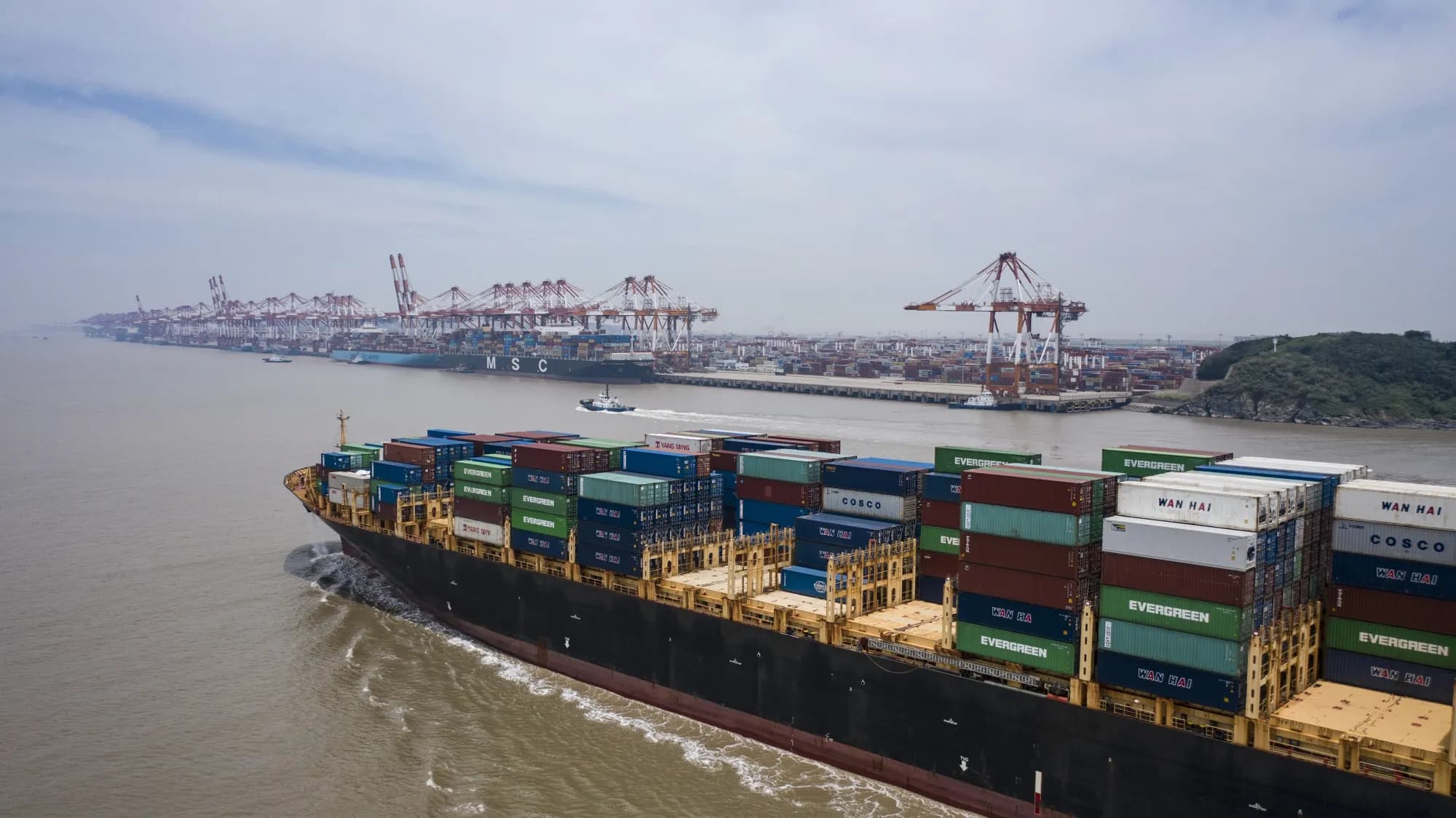We're loading the full news article for you. This includes the article content, images, author information, and related articles.
The latest escalation in the US-China trade war, triggered by China's new export controls on rare earth minerals, could significantly impact Kenya's economy, affecting import costs, export opportunities, and the value of the Kenyan Shilling.

Former US President Donald Trump announced on Friday, October 10, 2025, that the United States will implement new 100% tariffs on imports from China, effective November 1, 2025. This move significantly escalates trade tensions between the world's two largest economies. Trump stated the tariffs are a direct response to what he termed "aggressive" actions by China regarding export controls on rare earth minerals.
The new tariffs will be imposed in addition to existing import taxes on Chinese goods, which currently stand at 30%. Trump also indicated that the US would impose export controls on "any and all critical software" starting November 1. The announcement followed a day after China expanded its export controls on rare earth elements and related technologies.
The current escalation revives a trade war initiated by Trump during his previous presidency. Previous tariffs imposed by the US on Chinese goods reached as high as 145%, with China retaliating with 125% import taxes on American products. These earlier tensions led to negotiations that reduced US tariffs to 30% and Chinese tariffs to 10% to facilitate further talks.
China's recent restrictions, announced on Thursday, October 9, 2025, require foreign companies to obtain special approval for shipping metallic elements and technologies used in mining, smelting, and recycling rare earths. Beijing cited national security concerns, arguing that some rare earth technologies had been transferred to overseas parties for military and other sensitive uses. These minerals are crucial for manufacturing semiconductors, electric car batteries, jet engines, and defense weapons.
China's Ministry of Commerce issued new regulatory notices on Thursday, October 9, 2025, expanding the scope of its export control regime to cover rare earth metals, downstream materials, components, and related technical know-how. These measures, some taking effect on November 8, 2025, also introduce a "0.1 per cent rule," requiring MOFCOM approval for onward export to a third country if a foreign-manufactured product contains Chinese-origin rare-earth materials exceeding 0.1% of its total value per independently usable unit.
Analysts suggest that these developments could influence near-term public debate and policy execution globally. Stakeholders are urging clarity on timelines, costs, and safeguards. The prospect of such large tariffs has caused significant market instability, with major stock indexes falling sharply on Friday, October 10, 2025. The S&P 500 dropped 2.7%, the Dow Jones Industrial Average 1.8%, and the tech-heavy Nasdaq Composite 3.6%.
Kenya, a significant trading partner with both the US and China, faces potential ripple effects from this escalating trade war. Increased US tariffs on Chinese goods could lead to higher import costs for Chinese products in Kenya, as manufacturers may pass on these expenses to Kenyan retailers and consumers.
The global economic slowdown predicted by the International Monetary Fund (IMF), which estimates a 0.5% cut in sub-Saharan Africa's growth for every 1% slowdown in China's GDP, poses a significant risk. Kenya's heavy reliance on both superpowers for imports and exports, including tea, coffee, and flowers, could see these exports take a hit due to prolonged tensions.
Conversely, the trade war could present opportunities for Kenya. With the US potentially seeking to reduce reliance on Chinese imports, Kenya could step in as a stronger trade partner, leveraging its duty-free access to the American market under the African Growth and Opportunity Act (AGOA). However, the looming expiration of AGOA and the imposition of a baseline 10% tariff on all imports into the US, including from Kenya, complicate this potential advantage.
The weakening of the Kenyan Shilling (KES) is another concern, as a stronger US dollar, often sought by investors during market instability, makes imports more expensive and erodes purchasing power in Kenya. Kenya's burgeoning tech sector, heavily reliant on US imports for hardware, software, and cloud services, is particularly vulnerable to increased costs from tariffs.
The full extent of China's planned export restrictions remains a point of contention. Trump's social media post suggested China intended to impose wide-ranging export controls on virtually all its products, affecting all countries. However, the specific details and enforcement mechanisms of these broader controls are still emerging.
There is also uncertainty regarding the duration and intensity of these trade tensions. While Trump's rhetoric is definitive, he has previously backed down from similar threats.
Kenya is actively seeking to mitigate the impact of these global trade shifts. President William Ruto's government is reportedly close to a landmark trade deal with China that would allow duty-free access for Kenyan agricultural exports like tea, avocado, and coffee. This initiative is seen as a direct response to the US tariffs. Such a deal could significantly rebalance Kenya's trade deficit with China, which heavily favours Beijing.
The ongoing negotiations between Kenya and the US for a bilateral trade agreement beyond AGOA will also be critical to watch. The long-term implications for global supply chains and geopolitical alignments will continue to unfold, with Kenya navigating a complex international trade landscape.
Keep the conversation in one place—threads here stay linked to the story and in the forums.
Sign in to start a discussion
Start a conversation about this story and keep it linked here.
Other hot threads
E-sports and Gaming Community in Kenya
Active 9 months ago
The Role of Technology in Modern Agriculture (AgriTech)
Active 9 months ago
Popular Recreational Activities Across Counties
Active 9 months ago
Investing in Youth Sports Development Programs
Active 9 months ago